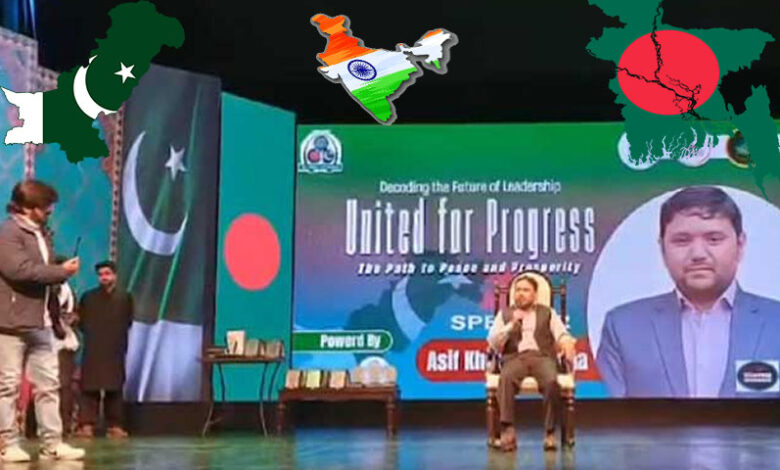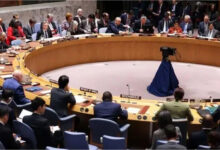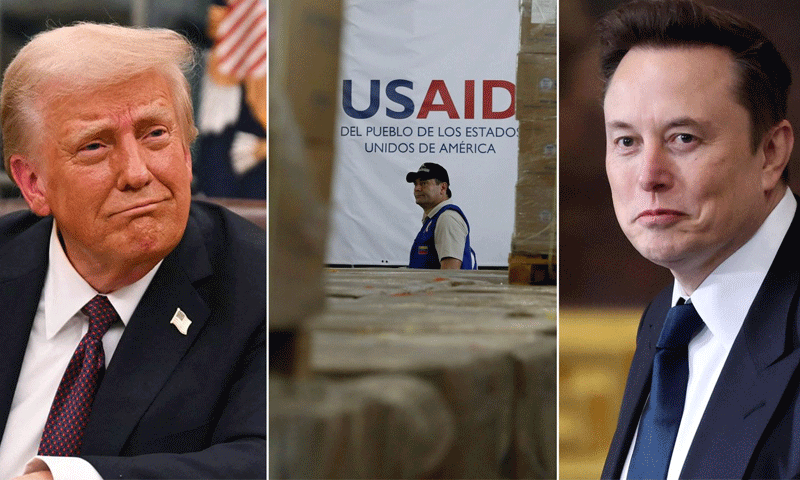Bangladeshi Experts Urge Joint Struggle Against Hindutva Ideology, Emphasize Unity with Pakistan

Islamabad:Following the end of Sheikh Hasina Wajid’s government in Bangladesh, diplomatic relations between Pakistan and Bangladesh have been improving. In this context, Bangladeshi experts have called for a united effort between the two nations to combat the rising influence of India’s Hindutva ideology.
Speaking at an international conference on Pakistan-Bangladesh relations held at the Pakistan National Council of Arts in Islamabad, Bangladeshi scholars from both the political and educational fields expressed solidarity with Pakistan and emphasized the importance of unity among Muslims in South Asia. The conference, organized by Rifah International University, Global Youth Association, Pakistan Social Alliance, and Pakistan Civil Society, saw participation from several prominent international scholars, including former Dean of Dhaka University, Dr. Shahidul Zaman, who attended virtually.
The participants stressed the need for cooperation in achieving shared peace, prosperity, and development, emphasizing the historical bond between the two nations. Dr. Shahidul Zaman stated, “We have gone through many ups and downs, but we have always felt the need for each other.” He also mentioned that they were now on the right path to better understanding one another, acknowledging that both countries face a common “larger enemy.”
During the conference, Pakistani experts, youth leaders, social media activists, and business figures discussed the importance of avoiding fake news and misinformation. They also hailed Bangladesh’s recent student-led movement, calling it the “Monsoon Revolution.”
The conference comes against the backdrop of warming relations between the two neighbors following the rise of an interim government under Professor Muhammad Yunus in Bangladesh. In September, Prime Minister Shehbaz Sharif met with Professor Yunus during the 79th session of the United Nations General Assembly, where the two leaders highlighted the strong brotherly ties between Pakistan and Bangladesh, based on shared faith, history, and culture. Both sides expressed interest in enhancing relations through parliamentary exchanges, public interactions, and collaboration between athletes, academics, artists, and students.
Following this, the first direct sea link between the two countries was established when a cargo ship sailed from Karachi to Chittagong. Moreover, Bangladesh purchased 25,000 tons of high-quality sugar from Pakistan in early December, breaking its usual reliance on Indian sugar imports.
Beyond economic interests, Pakistan and Bangladesh have shared concerns over India’s growing aggression. Earlier this month, members of a Hindutva group entered the Bangladesh Consulate in the northeastern Indian state of Tripura and tore down the Bangladeshi flag, an act that provoked a strong response from Dhaka, urging New Delhi to take immediate action against the perpetrators.
Addressing a political gathering, Professor Yunus urged Bangladesh’s political leaders to set aside their differences and form a united front against “Indian aggression.” He criticized those spreading false narratives that weaken efforts to build a new Bangladesh, highlighting that such disinformation was being spread by certain countries and influential players.
Dr. Yunus further emphasized that this issue concerns the very existence of Bangladesh, calling for unity against the ongoing campaign of misinformation.





